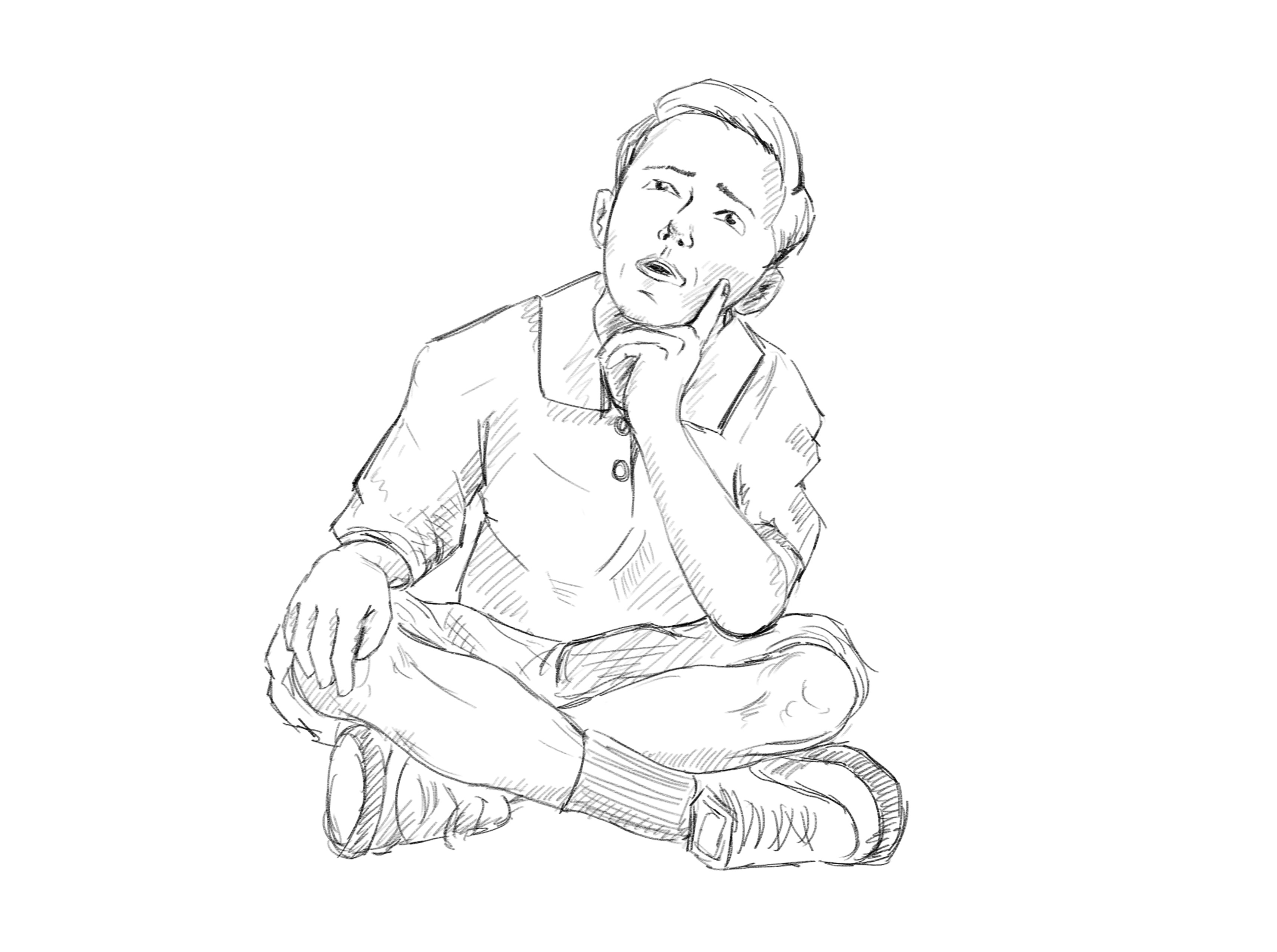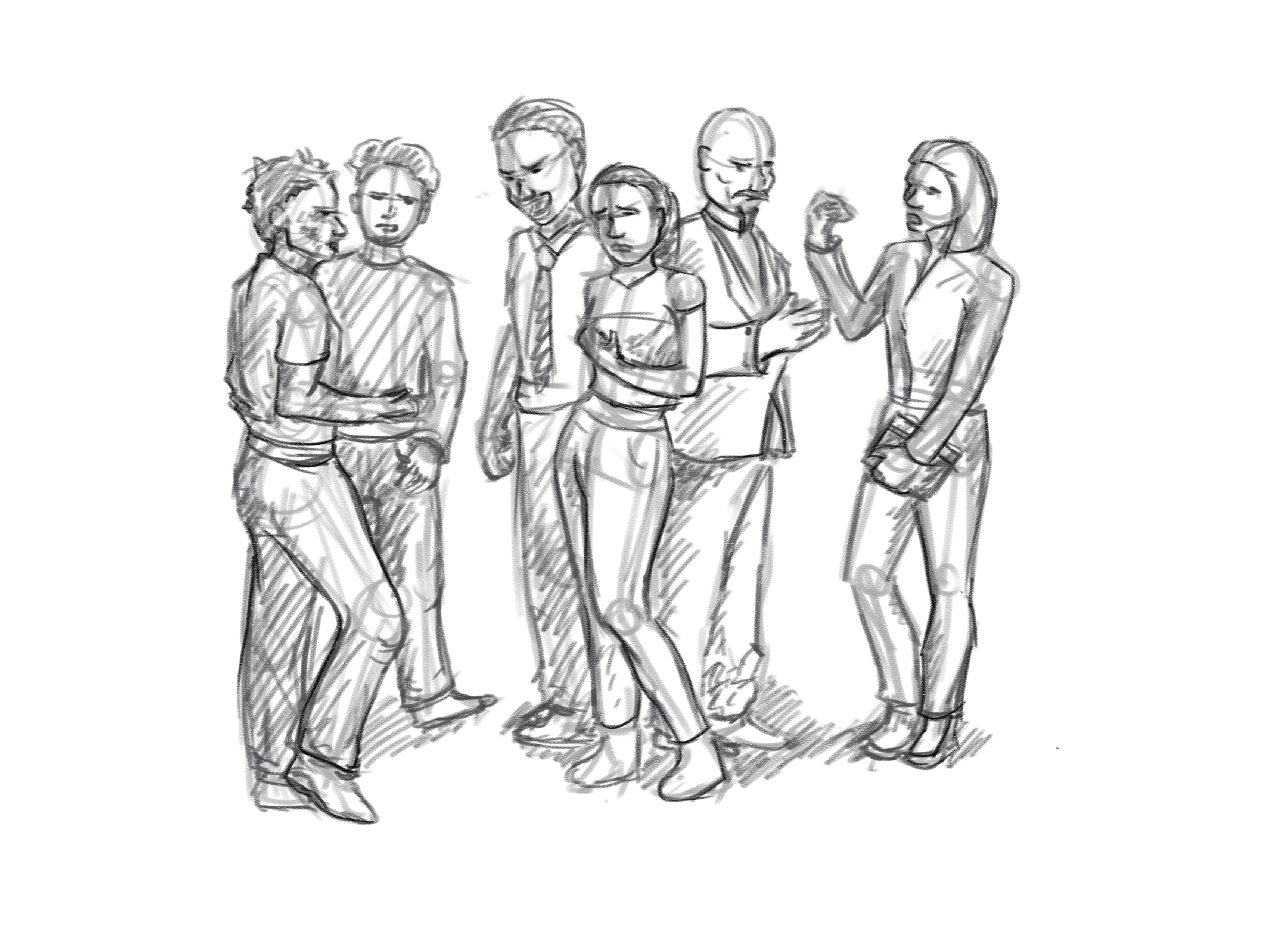
“Are they going to start killing Jews again?” asked my 10-year-old brother to my father, within the first hour I was home for Thanksgiving. This was the first time I had really talked to my family since the election. My brother’s question, crisp with childhood innocence, highlighted my own buried fears and concerns I had heard from other Jews in response to the election.
Since the election, like many of my peers at the School of the Art Institute of Chicago (SAIC), my thoughts have been racing. I’ve had concerns for the wellbeing of others, as well as for myself.
When I asked my father his thoughts on the election, he was silent. His silence isn’t necessarily unusual, but this time, it felt different. While I’ve been with my dad in times of fear or sadness, I’ve never seen him at such a loss for words.
I hardly talked to anybody on election night — I was too stunned. The next day I was tired, filled with rage, and felt like there was only one person at SAIC I could talk to who would understand how, and why, I was personally concerned.
My father’s side of the family is Jewish, and we are haunted by the inherited trauma that is quietly suffered by Jews around the world: the trauma of slavery, the many attempts at ethnic erasure, the Holocaust, and contemporary anti-semitism.
Over the holidays I asked my grandma to tell us about our family history. She told me that one wave of our family came over during the pogroms — organized massacres — in Russia and the Ukraine. My Jewish family has only been in the United states for three generations. My grandmother said that we never heard from our extended family after the Holocaust, and understandably so, wouldn’t expand further.
When my brother asked about the fate of Jews today, I wasn’t sure whether or not he was joking. The room went silent for a second, and my stepmother tried to be reassuring, but she could only manage a sentence or two. I told my brother that I wanted to tell him something comforting, but that the truth is, we don’t know what is going to happen, and we don’t know how we will be affected.
I knew, though, that I already felt the effects of normalized anti-semitism; plenty of Jews have been feeling them before Trump. I have had mentors, teachers, and friends whose trauma from anti-semitism has left them unable to finish classes, conversations, and movies.
This year I realized during a conversation with another Jewish artist that because of fear, many Jews (self included), do not wear Stars of David, hamsas, the Hebrew letter “chai,” or other Jewish symbols visibly in public. As a kid, I wouldn’t wear a Star of David because it was too obvious. If wore a symbol, I would wear a small hamsa (a hand of Abraham), because it was less noticeable.
The following week, I went to my first Jewish event in Chicago and held a Shabbat dinner (a weekly Jewish holiday and ritual that begins at sundown on Friday and ends at sundown on Saturday) at my apartment to attempt to process the election news with fellow SAIC Jews.
The need for cultural comfort has become vital to me. Although my religiosity has been inconsistent — at one point I would keep kosher and dress modestly only during Jewish holidays — the negativity I have experienced since the election has solidified my need to be confident in my Jewishness.
On Facebook the week after the election, I saw a semi-viral post saying something like, “Remember when we never saw swastikas in the United States?”
No. I don’t. I’ve seen and heard about friends who, from preschool through college, have had swastikas drawn on their doors, scribbled in their books, on notes, on their lockers, on their cars, on their houses, on their synagogues. People would would make jokes about or deny the Holocaust to my face. People would joke about Jews and ovens. They joked about how Jews run the banks and Hollywood.
And then Trump appointed Steve Bannon, a notorious anti-semite. I was talking to a Jewish woman I know outside of school who said her family has been preparing documents and their belongings so that if they need to flee the country, they are ready. Like the family I never knew, her great-grandparents did not survive the Holocaust.
People seem to be surprised Donald Trump and his cohorts have made it this far, and will be leading our country come January 20. I have been angrily taken aback by this common response. Racism, xenophobia, sexism, homophobia, transphobia, white supremacy, and neo-Nazism have been a part of this country since its creation. The more I learn — the more I interrogate our culture — the more I realize how embedded these philosophies are in America.
I have seen a couple Facebook posts adjacent to the idea that “Star Wars” and “Harry Potter” have elements of Nazism and the Holocaust, which is something I’ve been thinking a lot about over the past couple of years. In art history I saw an Anselm Kiefer painting of a Nazi memorial hall and some pictures of Nazi architecture — they looked like sketches for the interior of the Ministry of Magic. The Facebook post I saw noted how the ministry was after Harry, and Hermione for that matter, because of their blood, which wasn’t “pure wizard.” In “Star Wars,” the evil army was literally named after the S.S.
While I am writing this to give one experience of the election, I am also writing this in hopes that we, as smart, creative, active young people, will not let this election tear our respective groups apart. We need to support one another, trust each other, and understand that we will never truly understand what it is like to live in someone else’s body. We have to trust that when someone says they are hurting, that they are, and even if it is outside of our own experience, to show empathy to each other’s pain. No one has the right to invalidate your pain, your fear, or your experience.
The so-called “Oppression Olympics” — saying that Person A has suffered more than Person B — have got to stop. Identity policing — telling people that they aren’t enough of their race, gender, sexual orientation, etc. to have a voice within the identity group — has got to stop. No more invalidating our peers’ experiences because we only know our own.
We must take the pluralistic approach. We must go to the fantastic resources at our school to truly try to understand what diversity, inclusion, and intersectionality mean. Pluralism is all of us. We must stand together despite our differences; stand together in our similarities.
I fear that in Jewish circles I am not Jewish enough, and in everyday life I’m too Jewish for my Christian friends to understand me, and too white (a category I’ve never felt fully a part of, though I know that I benefit from whiteness in most situations).
I grew up thinking that being Jewish wasn’t that different from being anybody else. Then when I came to college I began to miss customs I didn’t even realize were customs and I began to notice how people didn’t understand them. I thought that a little extra security at synagogue, at camp, in homes, was normal. I thought it was strange that the Transportation Security Agency (TSA) would search my dad more than other fathers going through security, and that at times they’d look at our passports a few seconds longer. When I had the opportunity to go to Europe, these experiences were heightened. The border officers left with our passports for at least 10 minutes. In order to go to the Holocaust Museum of Athens we had to go to the back door, ring the doorbell, and be buzzed in by security who checked us out through a camera on the door before letting us in.
In the Jewish Museum in New York City (NYC), you must go through a metal detector and check your belongings before you can go through the museum. You don’t have to do at any of the art museums in NYC..
According to the PEW Research Center, Jewish people make up 0.2 percent of the world population and 1.8 percent of the United States population. It’s notable how small this percentage is, as the United States is considered to have one of the highest Jewish populations in the world; it comes in second to Israel, where Jews make up 75.6 percent of the population.
In the past month there have bomb threats on Jewish Community Centers (JCCs), Jewish schools in Britain, and several acts of vandalism on synagogues, cars, and homes.
I don’t know how Trump’s presidency will turn out. Perhaps it won’t be as bad as we think, or maybe he will get impeached (whether or not Trump being impeached will be a good thing is debatable). Maybe it will be hard and painful.
But I like to think we will get through. Maybe it will be as bad as we fear, in which case these divisions and separations will likely be our demise.






